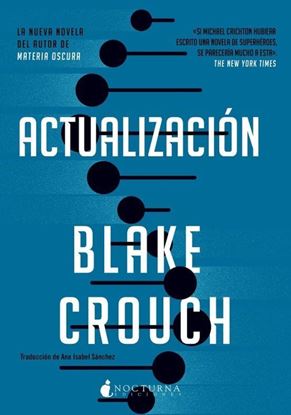

NOVEDADES
ERES TU MEJOR ALIADA
La guía que necesitas para tu glow up emocional: aprende a transformar la inseguridad en amor propio y a rodearte de relaciones que sumen.
¿Qué pasaría si pudieras transformar tu diálogo interno, fortalecer tu autoestima y rodearte de relaciones auténticas que te impulsen? Allison Torregrosa, psicóloga experta en autoestima y relaciones, te ofrece las claves para reconectar contigo misma y poner en orden tus relaciones. Con su enfoque claro, directo y práctico, aprenderás a conocerte en profundidad, a gestionar tus emociones y a mejorar tu diálogo interno. Además, comprenderás la importancia del tipo de personas de las que te rodeas, cómo soltar lo que no te hace bien y establecer nuevas relaciones y amistades sanas y verdaderas.
Atrévete a emprender este viaje hacia la mejor historia de amor de tu vida: la que tienes contigo misma. Porque cuando te conviertes en tu mejor aliada, todo cambia.
Elige quererte, crecer y brillar junto a las personas que también brillan contigo.
1,450
1,160
LLAMADA PERDIDA
Lo cierto es que nunca he podido narrar –ni opinar– desde un lugar discreto, nunca he podido hacerme invisible, y para ser sincera tampoco lo he intentado. Amo la realidad que desenmascaramos en cada uno de nuestros actos. Amo la voluntad de asombro.
Creo que lo más honesto que puedo hacer literariamente es contar las cosas como las veo, sin artificios, sin disfraces, sin filtros, sin mentiras, con mis prejuicios, obsesiones y complejos, con las verdades en minúscula y por lo general sospechosas. Hacerlo de otra manera seria presuntuoso por mi parte. Estaría engañándome y engañándolos».
1,450
1,160
MAYO CLINIC. PRESION ARTERIAL ALTA.
La presión arterial es la fuerza que lleva sangre enriquecida con oxígeno a los órganos y tejidos y también transporta desechos a los pulmones, el hígado y los riñones para su eliminación. Cuando la presión tiene altos índices, el flujo de sangre se altera, y por lo tanto las principales funciones de los órganos pueden verse afectadas de manera severa. Si bien la presión arterial aumenta naturalmente con la edad, o es un padecimiento frecuente en la familia, es posible controlar la predisposición y encontrar el balance correcto para manejar la hipertensión.
1,450
1,160
EL PODER DE ESTAR PRESENTE
En El poder de estar presente, descubrirás cómo ejercitar la atención plena te permitirá superar el estrés, gestionar tus emociones con mayor claridad y encontrar serenidad en el día a día. Con un enfoque práctico y accesible, este libro combina enseñanzas milenarias con ejercicios concretos que te guiarán en el camino hacia el autoconocimiento y te ayudarán a alcanzar un bienestar integral. Descubre el arte de vivir plenamente a través de la atención consciente, una práctica que no solo te conectará contigo mismo, sino que también enriquecerá tus relaciones y te permitirá afrontar la vida con una nueva perspectiva.
1,450
1,160
ACTUALIZACION
Logan Ramsay es el siguiente paso en la evolución humana.
Al principio no tiene claro qué ha cambiado. Solo nota detalles puntuales: se concentra mejor, es capaz de hacer más cosas a la vez, lee muy rápido, su memoria ha aumentado y no necesita las mismas horas de sueño. Poco a poco, es innegable: a su cerebro le está pasando algo. Y a su cuerpo. Ha empezado a ver el mundo y a quienes lo rodean de un modo completamente nuevo. La verdad es que el genoma de Logan ha sufrido un hackeo. Y hay una razón por la que ha experimentado esta actualización, una razón que se remonta a un horrible legado familiar. Lo que le está sucediendo es solo el inicio de un proyecto mucho más grande, y para hacerle frente Logan tendrá que usar sus nuevas habilidades y transformarse en algo más que él mismo. Quizás incluso en algo más que un ser humano. Pero en el proceso no puede evitar preguntarse: ¿y si en realidad la única esperanza de la humanidad consiste en diseñar nuestra propia evolución? Íntima y épica a la par, Actualización es la nueva novela del galardonado autor de Materia oscura, una historia frenética sobre los límites de la humanidad y sobre nuestro potencial ilimitado.
1,450
1,160
TIEMPO PARA VIVIR
Toma las riendas de tu tiempo y establece hábitos poderosos para sacar el máximo partido de tu vida.
Descubre 100 herramientas prácticas y fáciles de aplicar para gestionar tu tiempo y aprovecharlo al cien por cien.
¿Te cuesta concentrarte en una sola tarea?
¿Dejas siempre tus hobbies para después?
¿Tu vida personal y el trabajo se entremezclan demasiado?
¿Sientes que procrastinas mucho?
El tiempo es lo único que tienes. Aprende a sacar el máximo partido a tu trabajo para poder disfrutar de tiempo de calidad para lo que de verdad importa. Descubre el poder de los pequeños hábitos, aprende a planificar, define objetivos realistas, maximiza tu concentración, déjate de distracciones y encuentra momentos para hacer lo que realmente te gusta.
En definitiva: actúa en el día a día para construir una vida alineada con lo que realmente te hace feliz.
1,450
1,160

























